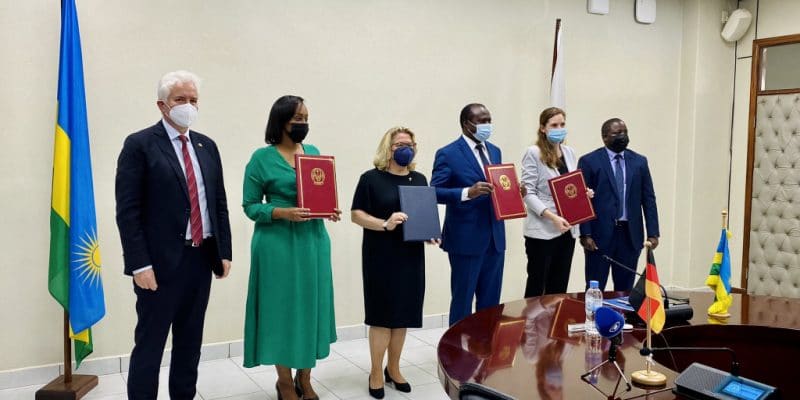Rwanda gets $56 million from Germany to support its climate goals. The funds will also support the implementation of sustainable development projects in the East African country.
Relations between Rwanda and Germany are accelerating on the climate front. Berlin has approved 56 million euros in funding for the East African country. In this financing allocated by the German Development Agency (KfW), 26 million dollars are intended to support measures to adapt to climate change. This is to support Rwanda in the implementation of its nationally determined contributions (NDCs).
https://twitter.com/GermanyinRwanda/status/1498685418312814598
Upon signing the Paris Climate Agreement in 2015, Rwanda committed to reducing its greenhouse gas emissions by 38% by 2030. In 2020, Rwanda announced an ambitious climate plan, with an overall cost of $11 billion. As part of this policy, the Rwandan government plans to reduce its emissions by 4.6 million tons through the deployment of renewable energy (solar and hydroelectric), improving energy efficiency in industrial processes, introducing emission standards for vehicles, deploying electric vehicles and promoting the use of biogas on farms.
Support for the sustainable city
This program will cover other important sectors such as water, agriculture, land and forest restoration, human settlements, health, mobility as well as mining. The KfW funds will be reinvested by the Rwanda Green Fund in these climate projects. The second tranche of funding from Germany is for sustainable urban development.
Read also- RWANDA: Kigali gets high-tech bins for efficient waste collection
The 30 million euros will be used to implement the Green City Kigali. This project supported by the Rwandan government aims to make the capital Kigali a reference in terms of development of green cities through the construction of ecological and affordable housing.
The project also focuses on the development of climate-friendly urban infrastructure, including nature-based solutions for drainage and heat absorption, rainwater harvesting and fresh water supply, and wastewater treatment. According to the Rwandan government, the green housing is expected to benefit 8,000 people.
Jean Marie Takouleu







